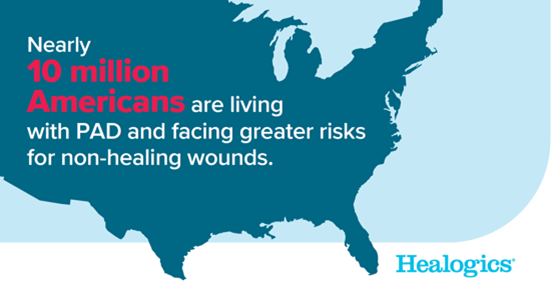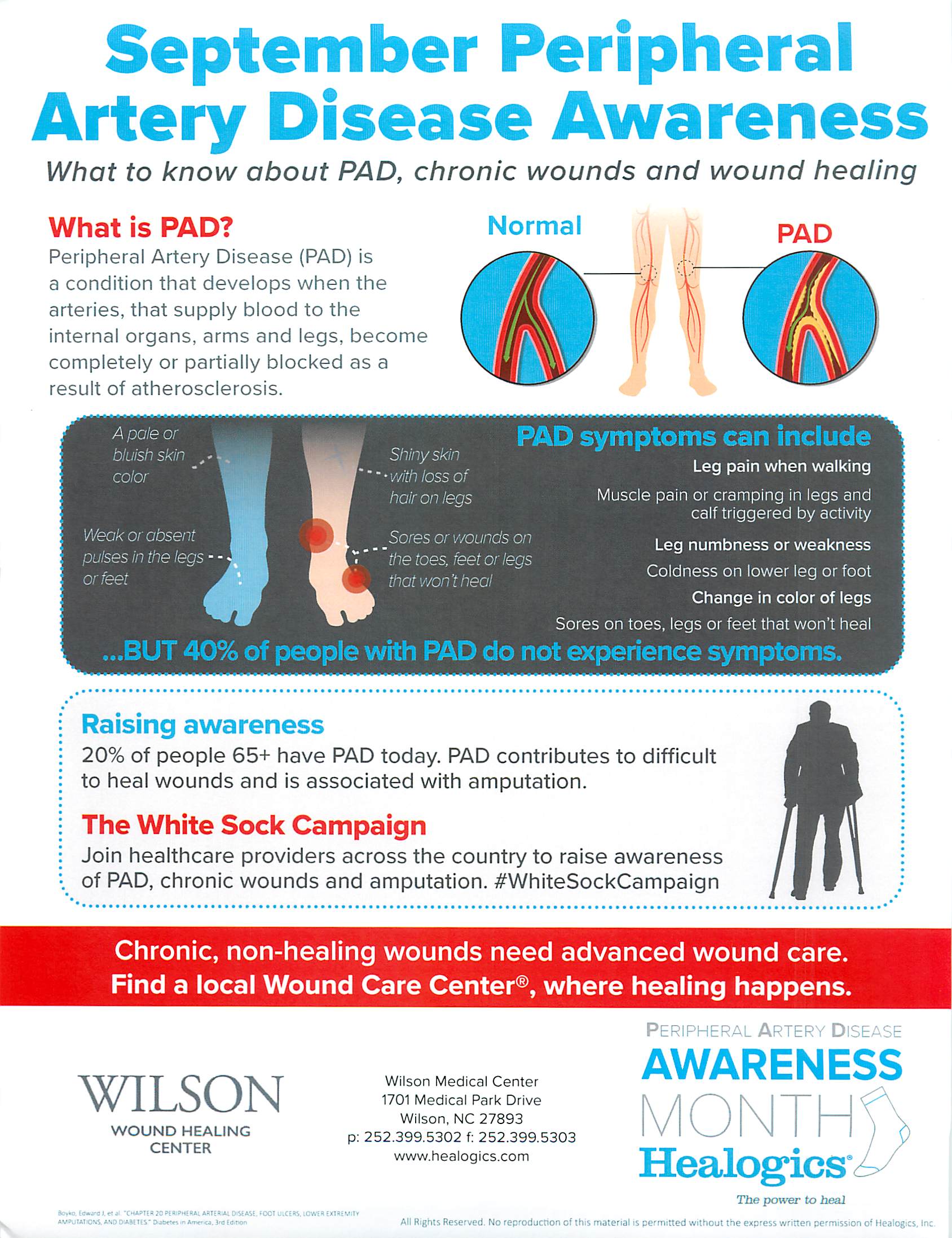Wilson Wound Healing Center Raises Awareness of Peripheral Artery Disease
September 6, 2021

Peripheral Artery Disease (PAD) is a condition that develops when the arteries, that supply blood to the internal organs, arms, and legs, become completely or partially blocked as a result of atherosclerosis. PAD affects between eight and 12 million people in the U.S., contributes to difficult to heal wounds and is associated with amputation. Though the symptoms may be serious, an astonishing 40 percent of people with PAD do not experience any symptoms.
Wilson Wound Healing Center, a member of the Healogics® network, treats chronic wounds with underlying conditions of the disease as well as performs non-invasive tests for PAD and counsels patients on how to manage the illness which can, if left untreated, lead to lower limb amputation and death.

In addition to chronic wounds on the toes, feet or legs, the experts at Wilson Wound Healing Center give the following risk factors and symptoms of PAD:
- Those who smoke or have a history of smoking have up to four times greater risk.
- One in every three diabetics over the age of 50 is likely to have the disease.
- People with high blood pressure, high blood cholesterol or a personal history of vascular disease, heart attack, or stroke are at greater risk.
- As you get older the risk increases since the disease develops gradually.
- While some people dismiss it as a sign of aging, nearly everyone with PAD is unable to walk as fast or as far as they could before.
- A typical sign is experiencing fatigue or a heaviness in the limbs or cramping in the thigh or calf after walking or climbing stairs and then feeling better after resting.
- Leg or foot pain may cause trouble sleeping for those with PAD.
- The skin of the feet may change color and become pale or turn blue.
- Toenails that do not grow as well as before and decreased hair growth on the toes and legs may be another symptom.
Advanced PAD results in delayed wound healing and greater risk for limb loss. Timely detection and treatment of any wound can reduce risk of amputation and improve quality of life. Wilson Wound Healing Center offers advanced wound care treatment, technology, and research. That means patients heal faster than those who receive only generalized wound care.
For more information on managing PAD and treating chronic or infected wounds, contact Wilson Wound Healing Center located at 1701 Medical Park Drive, Wilson, NC, or call 252.399.5302.
